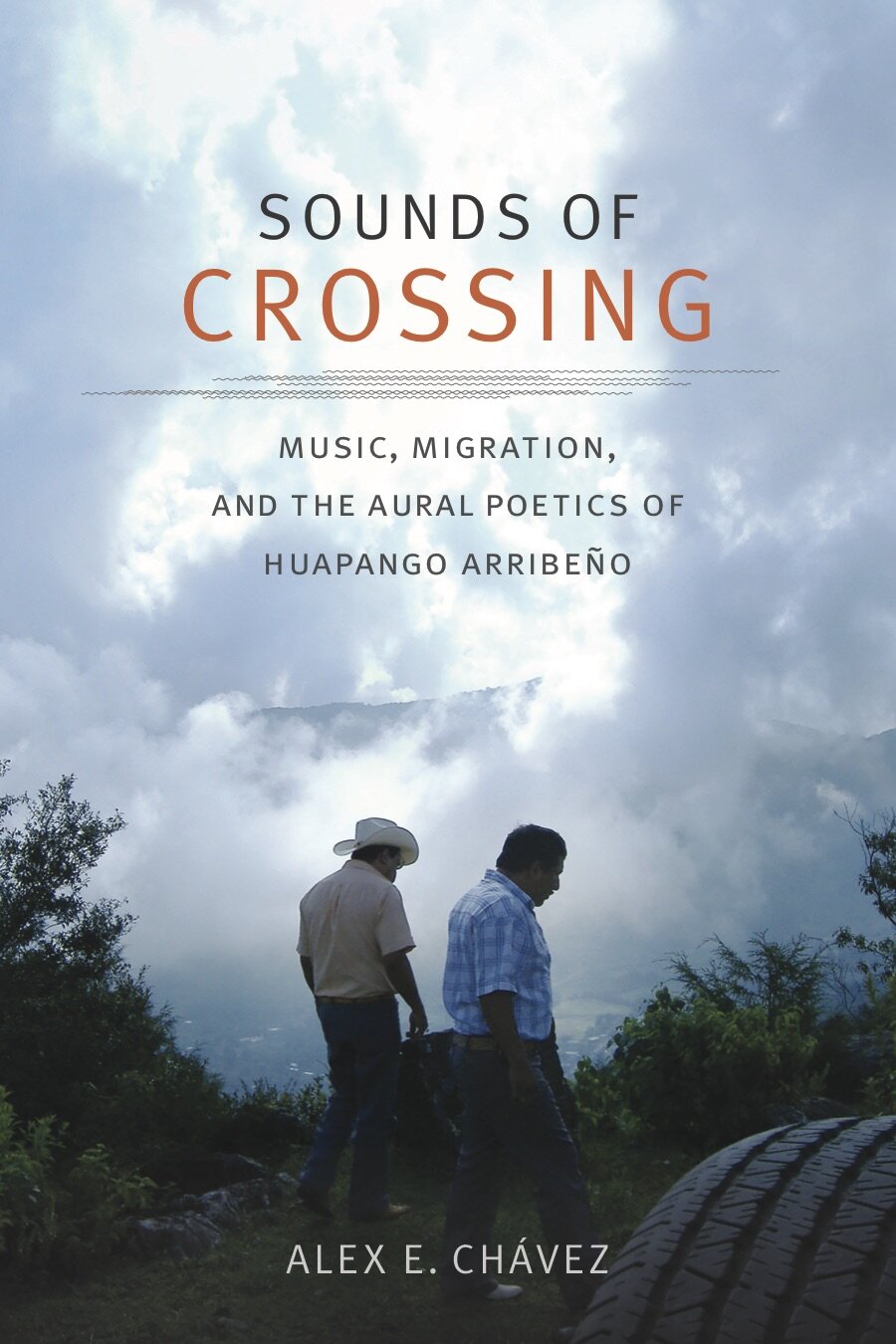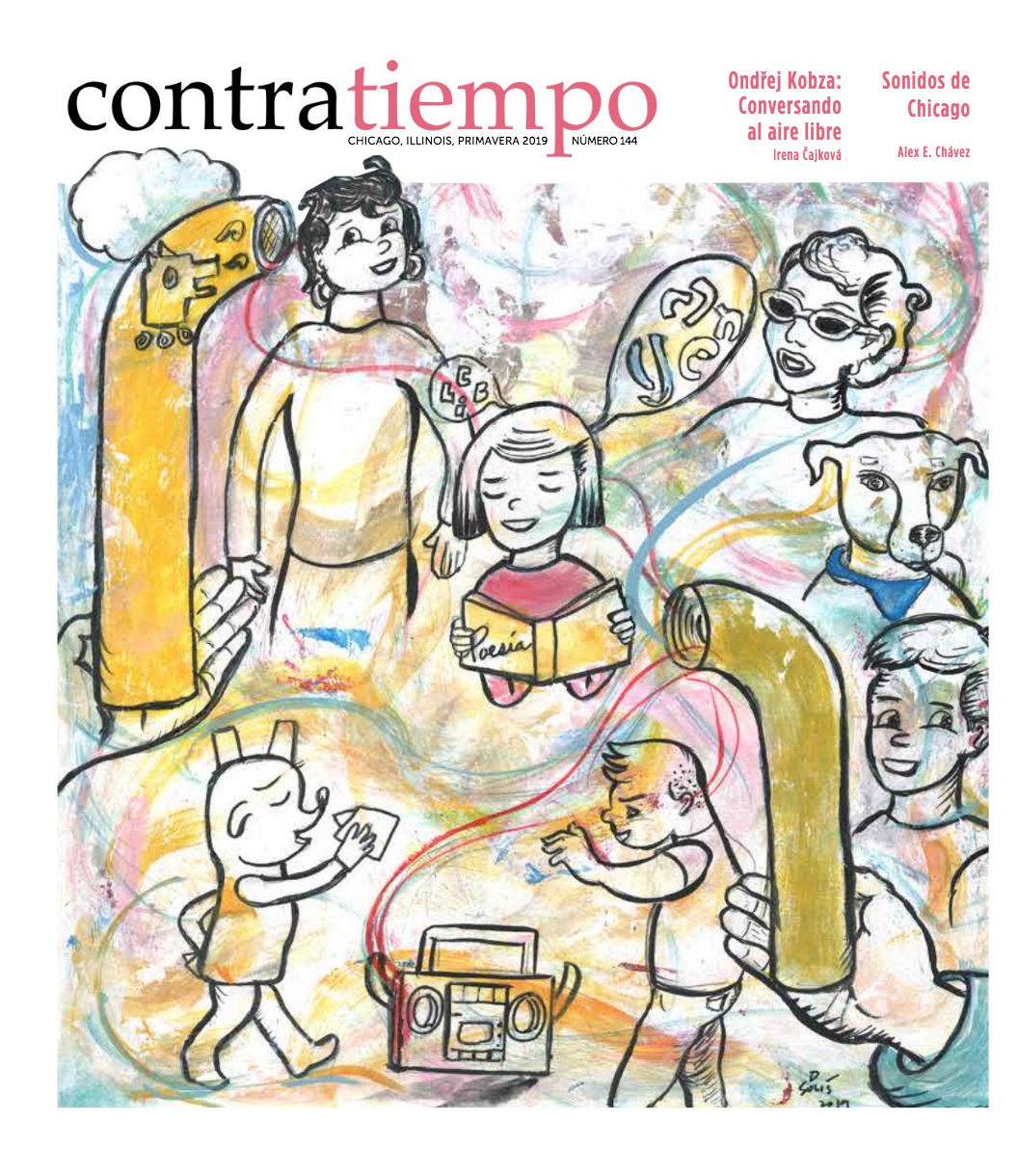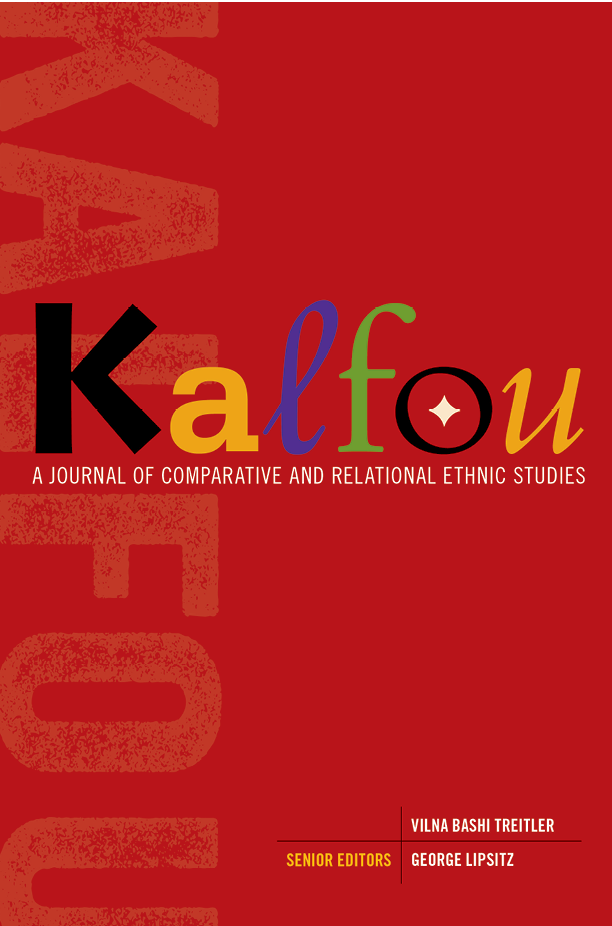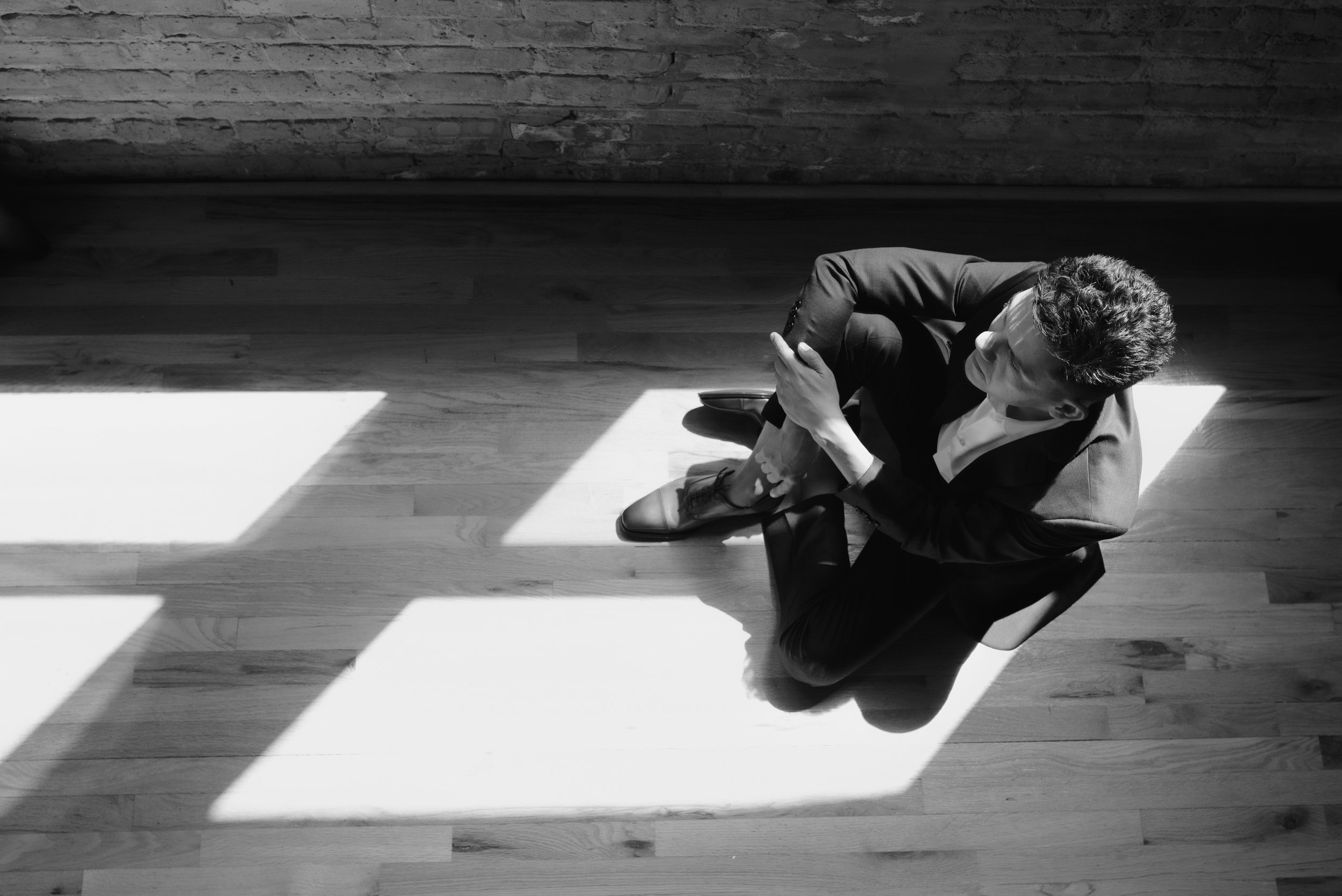
About
Artist-scholar-producer, Alex E. Chávez is the Nancy O'Neill Associate Professor of Anthropology in the Department of Anthropology and a faculty fellow of the Institute for Latino Studies at the University of Notre Dame. He earned his PhD in Anthropology from the University of Texas at Austin in 2010 with a concentration in Folklore and Public Culture and holds doctoral portfolios in both Mexican American Studies and Cultural Studies.
As a Cultural Anthropologist trained in Linguistic Anthropology, Ethnomusicology, and Folklore, his research explores articulations of Latinx sounds and aurality in relation to race, place-making, and the intimacies that bind lives across physical and cultural borders. In this regard, he has also consistently crossed the boundary between artist and scholar. As a professional musician for two decades, he has engaged in music-making alongside his interlocuters, transforming his own experiences into a unique understanding of how people cross various types of borders.
An accomplished musician and multi-instrumentalist, Chávez has performance experience in an array of styles ranging from American popular music to traditional Mexican son. He has recorded and toured with his own music projects; composed documentary scores (including Emmy Award-winning El Despertar [2016] & Where Soldiers Come From [2011]); and collaborated with acclaimed artists including Grammy Award winners Quetzal, Grupo Fantasma, and Latin Grammy Award nominated Sones de México, in addition to Charanga Cakewalk/Lila Downs and members of Grammy Award-nominated The Black Pumas, Antibalas, and various artists on the International Anthem record label. Over the years, he has performed at a number of prestigious venues and festivals, including the Austin City Limits Music Festival, the Old Town School of Folk Music's Folk and Roots Festival, SXSW, Ruido Fest, and the Joshua Tree Roots Music Festival.
His most recent research project explored the performance of huapango arribeño—a musical form that hails from north-central Mexico—among undocumented Mexican migrants in the United States. Supported by the National Science Foundation and the Ford Foundation this work forms the basis of his award-winning book Sounds of Crossing: Music, Migration, and the Aural Poetics of Huapango Arribeño (Duke University Press 2017). This book represents the first extended study of huapango arribeño and offers a fine-tuned ethnographic analysis of how Mexican migrants construct meaningful communities amidst the contemporary politics of immigration in the United States. He significantly extended the reach of this research through collaboration with the Smithsonian Institute. In 2016, he produced the Smithsonian Folkways recording of huapango arribeño featuring Guillermo Velázquez y Los Leones de la Sierra de Xichú included in the world-renowned Tradiciones music series.
He has published widely in various academic journals, including the Journal of Linguistic Anthropology, Latino Studies, the Journal of American Folklore, Latin American Music Review, and Southern Cultures, has contributed to prominent volumes, including Ethnographic Refusals, Unruly Latinidades (2022), Decentering the Nation: Music, Mexicanidad, and Globalization (2019), Making Sense of Language (2016), Latino, American, Dream (2016), Iconic Mexico (2015), and Celebrating Latino Folklore (2012). His writing has also been featured in public venues such as the Huffington Post, Revista Contratiempo, and CaMP Anthropology.

latest
“SONOROUS PRESENT” PREMIERE AT THE GETTY CENTER MARCH 16-17
Sounds of L.A. 2024 at the Getty Center launches on March 16 & 17 with an exclusive performance of immersive, poetic music from Alex E. Chávez’s forthcoming album SONOROUS PRESENT. What began as an experimental, collaborative, and improvised performance in Chicago—inspired by the music and poetics of Chávez’s award-winning book Sounds of Crossing—has been subsequently reimagined as a studio album in collaboration with Grammy Award-winning producer Quetzal Flores SONOROUS PRESENT offers a never-before-heard blend of Mexican and Latin American folk elements with progressive jazz, poetry, dance, field recordings, and ethnographic songwriting that crosses the sunburst surrealism of America’s musical and cultural borderlands. Presented in collaboration with the Smithsonian Folklife Festival. Ticket reservation details here.
Got to chop it up with the one and only Gilles Peterson on WorldWideFM about the forthcoming Dos Santos album “City of Mirrors” on International Anthem, which is also the next white label edition release on Gilles’ exclusive “Test Press Club!”
Dublab interview
Had a deep and thoughtful conversation with anthropologist and DJ Alexandra Lippman (aka Xandão) on Dublab about my art and research.
SOLO. ALBUM.
I’ve just wrapped post-production on “Sonorous Present”— my solo album produced by Grammy Award-winning Quetzal Flores. AND I’m also pleased to share that I am a 2023 recipient of a NALAC FUND for the ARTS GRANT, which will help support the live premiere of “Sonorous Present.”
I’ve been eager to share news of this long-awaited project, which features friends & artistic luminaries: Roger Reeves (Guggenheim recipient), Martha Gonzalez (MacArthur fellow), Aloe Blacc, Laura Cambrón, Lucía Gutiérrez Rebolloso, Ramón Gutiérrez, and Sandino Gonzalez . With Matt Ulery, Nick Mazzarella, Chad McCullough, Cole DeGenova, Peter Vale, Daniel Villarreal, Hope Shepherd, and Naomi Culp.
Thanks to Chris Sorem of Nest Recorders in Los Angeles and Doug Malone of Jamdek Studios in Chicago. FINALLY, abrazos to Dave Lobel and Gil Gastelum for believing in the art. I anticipate a winter 2023/2024 release, yet wanted to take a beat & share the good news now.
NEH and mellon Fellowships (2020-2021)
I was recently named one of 10 Mellon Emerging Faculty Leaders at the Woodrow Wilson National Fellowship Foundation. The award supports junior faculty whose research focuses on contemporary American history, politics, culture, and society, and who are committed to the creation of an inclusive campus community for underrepresented students and scholars.
I was also awarded a National Endowment for the Humanities long-term residential fellowship at the Newberry Library in Chicago. During the nine-month fellowship, I will be working on my second book project, which explores aurality in Chicago's urban context.
ANTHROPOD INTERVIEW
I’m featured on the latest AnthroPod Episode. We chat about borders, citizenship, race, and aurality, listen to some of my field recordings, and get into my latest arts/research-based project, Sonorous Present. Listen Here.
Recently had a great conversation with Professor Santiago Guerra, Director of Southwest Studies at Colorado College, for the Hulbert Center Podcast about my Journal of American Folklore article "Gender, Ethnonationalism, & the Anti-Mexicanist Trope.”
CONVERSATIONS ON Sound and Power
Great two-part discussion with the Sonic Insurgency Research Group about the relation between sound, power, and culture, especially in terms of Latinx diasporic sonic traditions. Check it out!

books
sounds of crossing
The winner of three book awards—including the Alan Merriam Prize from the Society for Ethnomusicology, the Society for Latin American and Caribbean Anthropology's Book Prize and the Association of Latina and Latino Anthropologists Book Award—my book Sounds of Crossing: Music, Migration, and the Aural Poetics of Huapango Arribeño (Duke University Press) follows the moments of huapango arribeño—a musico-poetic form that hails from north-central Mexico—within the lives of both audiences and practitioners, from backyard celebrations in the urban sprawl of Dallas, Texas, to patron saint festivities in the highlands of Guanajuato and mobile home get-togethers along the lush back roads of northern Mississippi. Based on several years of ethnographic research, this book represents the first extended study of huapango arribeño and offers a fine-tuned ethnographic analysis of how Mexican migrants construct meaningful communities amidst the contemporary politics of immigration in the U.S. I explore how “Mexican sounds”—as a locus of aesthetics, performances, and signifying practices—resonate across physical, aural, and cultural borders and what they reveal about transnational migrant lives.
Sounds of Crossing made Remezcla's
"Best Latino/Latin American History Books" list of 2018. Read my author interview about on CaMP Anthropology.
ethnographic refusals, unruly latinidades
In April 2019, I had the privilege of co-chairing an Advanced Seminar at the School for Advanced Research (SAR) alongside Professor Gina Perez on the topic of Ethnographies of Contestation and Resilience in Latinx America. We were joined by some of the most prominent Latina/o/x anthropologists— including Ana Aparicio, Andrea Bolivar, Sherina Feliciano-Santos, Santiago Guerra, Jonathan Rosa, Gilberto Rosas, Aimee Villarreal, and Patricia Zavella. The first ever gathering of its kind at SAR, the seminar resulted in the edited volume Ethnographic Refusals / Unruly Latinidades (School for Advanced Research/University of New Mexico Press)—available now!
“The contributors in Ethnographic Refusals, Unruly Latinidades highlight the value of “radical inclusion” in their research and call for a critical self-reflexivity that marshals the power of bearing witness to move from rhetoric to praxis in support of these methodologies within anthropological perspectives. The essays in this collection do not offer simple solutions to histories of colonialism, patriarchy, and misogyny through which gender binaries and racial hierarches have been imposed and reproduced, but rather provide a crucial opportunity for reflection on and continued reimagination of the contours of Latinidad. These scholars deploy Latinx strategically as part of ongoing dialogues, understanding that their terminologies are inherently imprecise, contested, and constantly shifting. Each chapter explores how Latinx ethnographers and interlocutors work together in contexts of refusal—ever mindful of how power shapes these encounters and the analyses that emerge from them—as well as the extraordinary possibilities offered by ethnography and its role in ongoing social transformation.”
Watch our SAR public colloquium.
the sonic commons
Photo courtesy of CumbiaSazo!
Building on my previous work, my current research further bridges anthropology, sound studies, and Latinx Studies by lending an “ethnographic ear” to the city of Chicago–work that forms the basis of a book project provisionally titled, Audible City: Latinx Chicago and the Sonic Commons. This sonically attuned study traces how sounds—broadly inclusive of political discourse, everyday soundscapes, cultural poetics, and music-cultures—broadcast the story of “Latinx Chicago” within the localized contexts and racialized politics of urban space. By studying Latinxs—the fastest growing population in Chicago—I offer an analysis of place-making centered around the ways sound mobilizes physical and political claims of belonging in the city. My ongoing fieldwork, audio mapping, and archival research suggest that aurality is often constitutive of dramatic expressions at the heart of battles over the claiming of public space in the city: from debates regarding noise ordinances, to the merits of outdoor festivals; from interpersonal confrontations around speaking Spanish in the streets of gentrifying neighborhoods, to the aural character of Chicago’s cultural poetics of place.
This research initially grows out of a Humanities Without Walls Global Midwest Research Initiative Award (2016) for which I served as Co-Principal Investigator of a consortium of scholars exploring Latinx arts across the Midwest. See our website www.latinoartmidwest.com.
I received two fellowships to support this research during AY 2020-21, they include a National Endowment for the Humanities (NEH) long-term residential fellowship at the Newberry Library in Chicago and a Mellon Emerging Faculty Leaders Award Fellowship on behalf of the Woodrow Wilson National Fellowship Foundation.
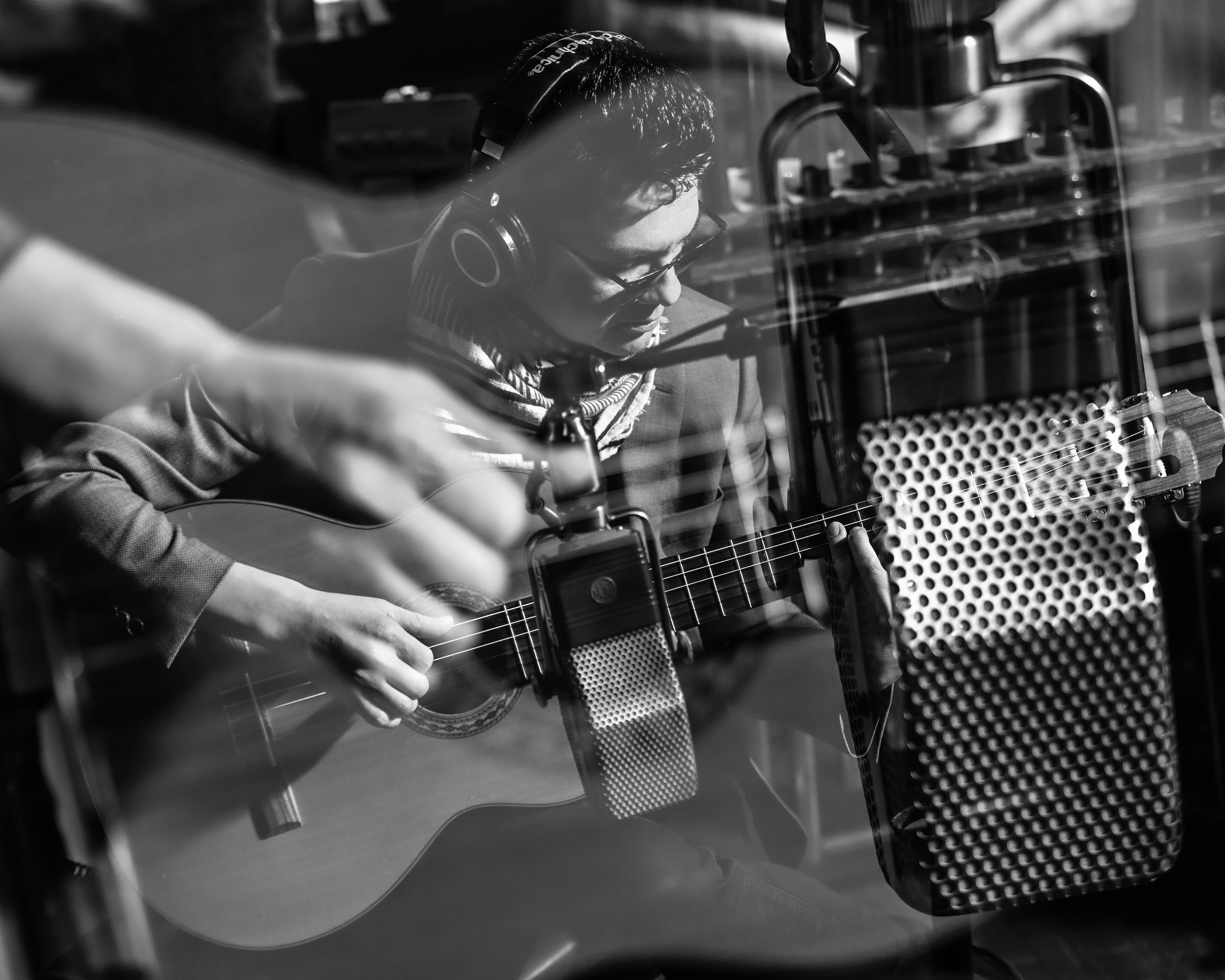
music
Dos Santos
"Dos Santos’ lyrics reflect current cultural shifts, just as their music merges the past with the present. This satisfies a yearning felt by many BIPOC to connect their daily lived experience with their roots.” — Chicago Reader
“City Of Mirrors . . . feels like it’s perpetually building and expanding . . . the bolts are tighter than ever on this project — and the subject matter is weighty & pressing, marking an imaginative step forward for a band that’s never limited itself to begin with.” — Rolling Stone
From jazz-tinged psychedelia to dissonant cumbia, Chicago-based quintet Dos Santos is at the forefront of a new era of Latinx alternative music, deftly bridging pan-Latin and progressive sounds to capture the idealized aesthetics of 21st-century América. Hailed as one of Chicago's most impactful marquee performers, Dos Santos pride themselves on the power of their live shows, as well as their ability to seamlessly distill pan-Latin American and progressive musical sounds.
They recently teamed up again with International Anthem for their latest LP release “City of Mirrors.”' Check out the lead single “A Shot in the Dark” and stream on Spotify.
Smithsonian Folkways
Huapango arribeño is a distinctive regional tradition of Mexican music born of colonial roots, longstanding but secluded in its mountainous homeland in the central states of Guanajuato, San Luis Potosí, and Querétaro. Extraordinary folk poet Guillermo Velázquez and his Leones de la Sierra de Xichú with their violins, guitarra quinta huapanguera,jarana, and percussive dancing carry the heartbeat of this ancient and enthralling vein of poetic and musical creation.
This album is the 45th in the Smithsonian Folkways Tradiciones/Traditions series of Latino music albums, produced by Alex E. Chávez with support from the Smithsonian Latino Center.
Enjoy a Free Download of the title track and check out the official “Serrano de Corazón” video below.
caramelo haze
Sonic futurism, hallucinatory escape, gut-wrenched yearning… “NOESTASAQUÍ” (you aren’t here)—the forthcoming debut album by Caramelo Haze on Nacional Records is all of these: a bold neon suite that glows in the lo-fi undertow of sunburst EQ sweeps and roasted 808s. Caramelo Haze is the newly-formed all-star outfit featuring Beto Martínez (founding-member of the Grammy Award-winning [and famously Prince-backing] Grupo Fantasma, who also spearheads the critically acclaimed bands Brownout and Money Chicha), Alex Chavez, Victor “El Guámbito” Cruz (member of the traditional and futuristic Colombian musical family of NYC where Bulla en el Barrio, Combo Chimbita, and MAKU Sound System [founding member] gestated—the same lineage of his Austin-based psychedelic power trio Nemegata), and John Speice (member of Grupo Fantasma and offshoots Brownout and Money Chicha (alongside Martínez), and has been a regular house drummer for Adrian Quesada’s (Black Pumas) Electric Delux Recorders and played drums for GZA, Bernie Worrell, and the Greyhounds).
Accomplished producers, songwriters, and multi-instrumentalists, these four musicians came together in the summer of 2020, deep in the throes of the pandemic to collaborate after months in isolation. They retreated to Martinez’s “Lechehouse Music” studios in Buda, Texas for a series of marathon recording sessions. The end result is the electro neo-sōl speculative odyssey, “NOESTASAQUÍ” (you aren’t here). From post-cumbia synth vamps to disco-inflected circum-Caribbean psychedelia, the genius and versatility of these musicians shines on this release, as they embraced total creative freedom.
“With DEFINE, Olmeca shines as an outstandingly skilled rapper, but also as an artist who is sensitive to his and his people’s reality and refuses to look the other way. The album celebrates Latinxs’ resilience and uniqueness in these dark times.” — Cheky, Remezcla
In 2019, I co-produced hip-hop artist Olmeca's 4th studio album, which spanned the sonic spectrum from old-school hip-hop to contemporary trap; Latin American grupero stylings to bugalú vamps. The album was four years in the making across studios in both Chicago and Las Vegas, and represents some of Olmeca’s most adventurous and introspective work.
Check out Remezcla's review, stream the album, and watch the title track video—which was listed as one of "The Best 5 Latin Alternative Songs of 2019" by NPR's World Cafe.

artistic commissions
all the world is sleeping
Musical Contributor
Directed by Ryan Lacen & spearheaded by Bold Futures, “All The World Is Sleeping” tells the story of a young Chicana in New Mexico struggling with addiction and motherhood. Watch the official trailer here.
The feature film was created by seven mothers whose battles with addiction led to the creation of this story. From the birth of the script to the first shot on set, they guided the non-linear film to create a unique, cerebral and chaotic view of the growing drug epidemic. The lead actresses Melissa Barrera (In the Heights) & Jackie Cruz (Orange Is the New Black) worked alongside these survivors to make sure their words felt both represented and authentic.
MxTx: Cross border Exchange
As U.S. contemporary politics have stoked fears and intensified attacks on Latin American migrants, particularly with populist calls for build a wall along the southern border with Mexico, MXTX has sought to build musical, cultural, and social bridges through collective art-making, community outreach, and live performances.
The curated and gender-balanced projects spearheaded by Golden Hornet involves over forty producers and composers from both sides of the U.S.-Mexico border. The album is available through Six Degrees Records.
chavela
Creative Consultant
"Just as Vargas, who died in 2012, stripped away costume froufrou, she peeled singing down to its essence. Celebrating a great ranchera interpreter without sugarcoating her, this straightforward film honors her approach." — Sheri Linden, Los Angeles Times
In 2017 I had the wonderful opportunity to offer my expertise to the music supervision team working on the feature documentary film Chavela about the legendary Costa Rican-born singer of Mexican ranchera music, Chavela Vargas.
PUENTES SONOROS
Liner Notes Curator
I had the honor of curating the liner notes for Quetzal’s latest album Puentes Sonoros out on Smithsonian Folkways Recordings. It was a blessing working with these wonderful souls and the record is absolutely stunning. Read the liner notes here and purchase here.
Pancho Villa Opera
Creative Consultant
Pancho Villa From a Safe Distance is a bilingual cross-border opera about the life and death of Pancho Villa—a genre-hopping composition by visionary composer Graham Reynolds. The opera is an insightful examination of the Mexican and Mexican-American impact on the culture and politics of West Texas, contributing to the current and timely conversation about borders and the limitations of the concept of delineated states.
Where Soldiers Come From
Score Composer
News and Documentary EMMY AWARD winner for "Outstanding Continuing Coverage of a News Story"
“A profoundly moving experience. One of the best movies I have seen this year.” — Michael Moore
“Hauntingly beautiful and deeply felt… some of the best Afghanistan war-related storytelling I’ve seen.” — Hank Stuever, The Washington Post
“Revelatory… emotional and engrossing." —Steven James Snyder, Time
Where Soldiers Come From is a 2011 American documentary film directed by Heather Courtney. The film is an intimate look at a group of young American men who join the Michigan Army National Guard, their families, and the town they come from.
Despertar: Chicano Civil Rights
Musical Contributor
Lone Star EMMY AWARD winner for Cultural/Historical Documentary and produced by Joe Rocha, KLRU’s "El Despertar" installment of Austin Revealed explores the struggle of the Chicano movement of the 60s and 70s. Through extensive oral histories, Austin Revealed shows how the Mexican-American community of Austin united to fight for quality education and equal representation. Watch the entire documentary below.
Letters From the Other Side
Score Composer
“A much-needed examination of the collateral damage of illegal immigration … sensitive ... effective and emotionally potent.” — John Anderson, Variety
“Impressively thorough … painful and honest.” — Austin Chronicle
Letters from the Other Side interweaves video letters carried across the U.S.-Mexico border by the film's director with the personal stories of women left behind in post-NAFTA Mexico. Director Heather Courtney provides a way for these women to communicate with both loved ones and strangers on the other side of the border, and illustrates an unjust truth—as an American she can carry these video letters back and forth across a border that these women are not legally allowed to cross.
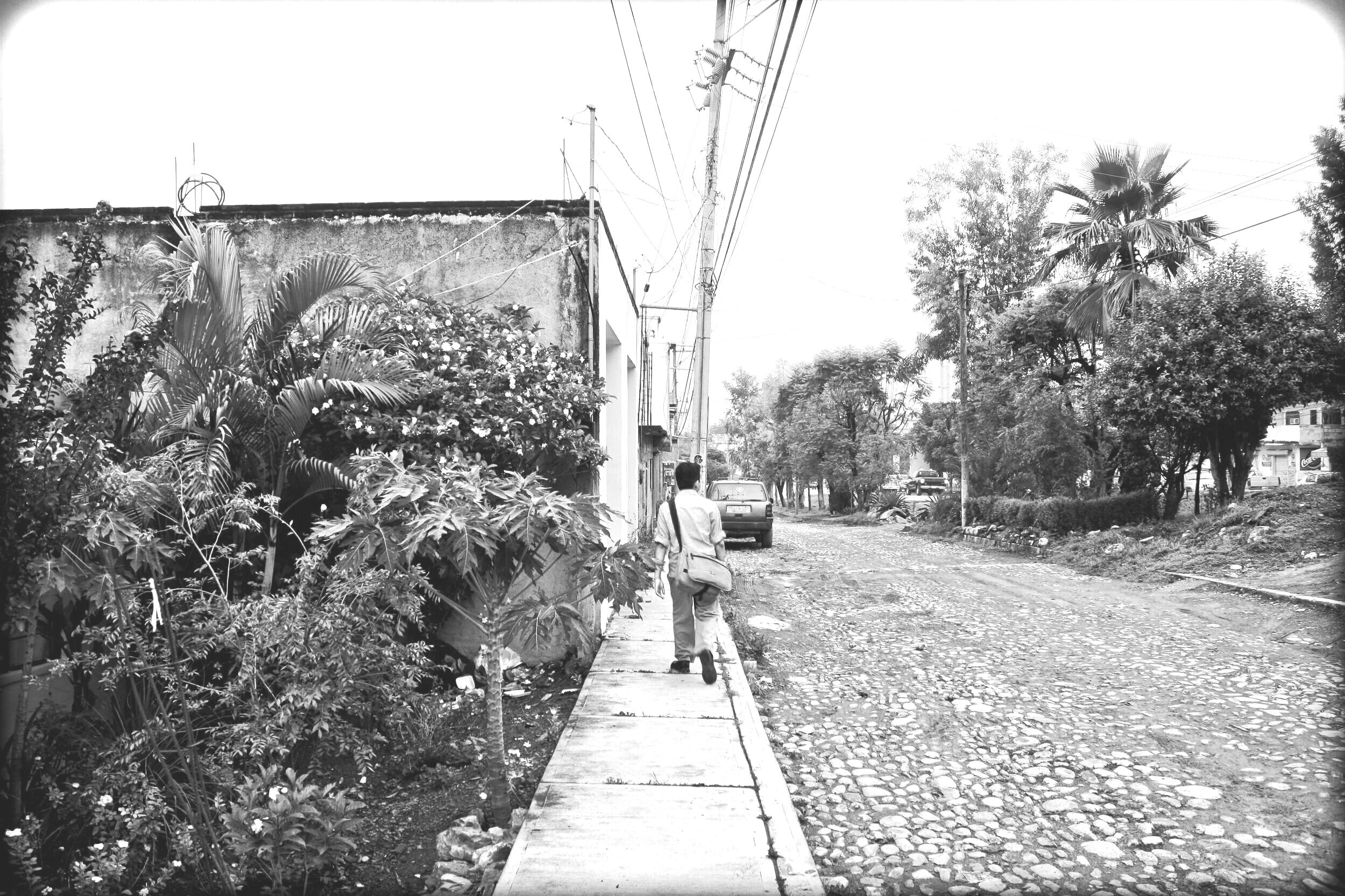
recent publications
Journal of American Folklore
In the wake of a Presidency that ended with a photo op at a border wall that Mexico never paid for and began by labeling Mexicans as rapists, my article “Gender, Ethno-Nationalism, & the Anti-Mexicanist Trope” was just published in the Journal of American Folklore—a piece that explores how anti-Mexicanism has powerfully shaped the landscape of contemporary politics of race, citizenship, and white violence in the United States, particularly as an important component of white ethno-nationalist rhetoric and its murderous consequences. It is available here.
contratiempo
Read my piece—"Sonidos de Chicago"—published in the spring 2019 issue of Contratiempo , which grows out of my ongoing ethnographic fieldwork concerning sound and urban space in the city of neighborhoods.
Kalfou
I had the privilege of contributing a Keyword entry on ”Presentness” to Kalfou: A Journal of Comparative and Relational Ethnic, co-edited by George Lipsitz and Vilna Bashi Treitler.
Excerpt: Typically, the structures of consciousness in how we experience time—or the broader phenomenological question of temporality—divide said experience into past, present, and future. These distinctions are not self-evident; rather, they are shaped by politics, institutions, society, economy, and so forth. Indeed, in his expressed engagement with historical materialism, Walter Benjamin claims that history—as one such structuring of temporality—is neither ideal nor causal, discrete nor universal, determined by the past nor exclusive to the future. Rather, it is a living process of present-future-pasts folding in on themselves. And a “real state of emergency”—recall that he wrote Theses on the Philosophy of History in early 1940 in France, where he was living in exile, having escaped Hitler’s Nazi regime—lays bare this fold of history, for its temporality is one that disrupts the anticipatory relation to the future as a type of progress and with it also the normalization of injustice as a necessity in history…
decentering the nation
In 2018, I had the opportunity to participate in a symposium on the topic of “Music, Mexicanidad, and Globazliation” alongside a number of luminary scholars, including Chela Sanvodal, Alejandro Madrid, Jesús A. Ramos-Kittrell, Lizette AlegreGonzález, among many others. The gathering subsequently formed the basis of the volume Decentering the Nation: Music, Mexicanidad, and Globalization (Lexington Books 2019), edited by Jesús A. Ramos-Kittrell. My essay, “‘Yo Lo Digo Sin Tristezas (I say it without lament)’: Transnational Migration, Postnational Voicings, and the Aural Politics of Nation,” extends questions I raise in my book Sounds of Crossing to further address the cultural complexities and contradictions of Mexican musical nationalism.





